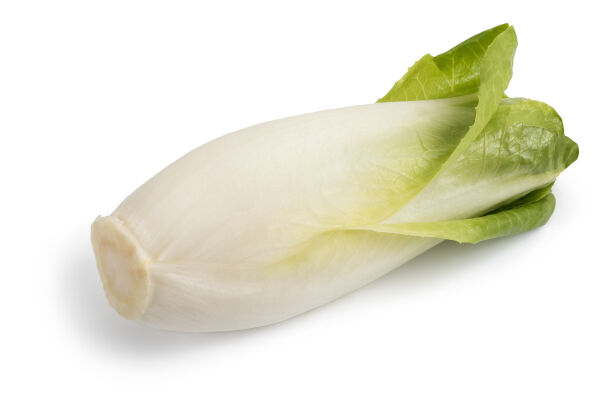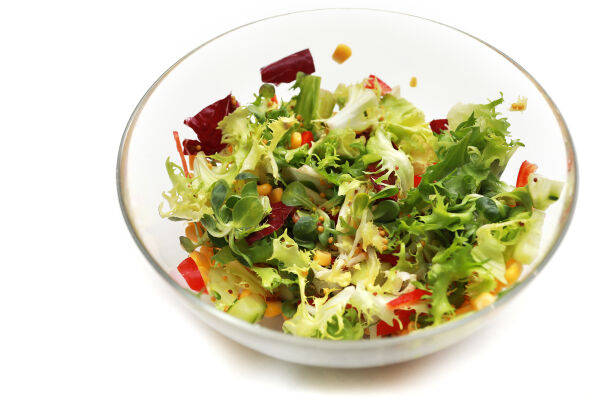Endive
Endive is a type of vegetable commonly used in grain dishes, salads, side dish, and much more!
The flavor profile for endive can be described as bitter and fiberous.
Endive contains over 18+ nutrients including 10 vitamins and 8 minerals. Endive is also low in sodium and trans fat free.
Vegan
Vegetarian
Paleo
Gluten Free
Uses For Endive
There are 6 uses for endive. Find your use and start enjoying this tasty food today!
Tips
Great ideas for purchasing, storing, and consuming endive.
- When buying endives from the store, look for heads that appear fresh, crisp, and free of mold. The leaves should be firm and brightly colored.
- Don’t be afraid of bruising. It won’t affect the taste, and you can just cut off the damaged part.
- Dark endives are more bitter than light endives, so if you’re using them in a dish that calls for bitter greens—like a Caesar salad or a kale-based soup—don’t use them.
- Endives will keep fresh in the refrigerator for about five days. It is best to cut off the base of the head before storing it in a plastic bag or container.
- The best way to cook with endives is to steam or sauté them quickly as you would with spinach. Endive pairs well with various ingredients, including blue cheese, walnuts, and cranberries.
Nutrition
Checkout the facts and figures to see how wealthy endive is.
Nutrition Facts
1 Serving
Serving size
Endive - Fresh
100 Grams
100 Grams
Amount per serving
Calories
per serving
17
Amount/serving
% Daily Value*
Total Fat 0g
0%
Saturated Fat 0g
0%
Trans Fat 0g
Cholesterol 0mg
0%
Sodium 22mg
1%
Amount/serving
% Daily Value*
Total Carbohydrate 3g
3%
Dietary Fiber 3g
11%
Total Sugars 0g
Includes 0g Added Sugars
0%
Protein 1g
3%
Vitamin K 257%
·
Folate 36%
·
Manganese 23%
·
Pantothenic Acid 18%
·
Vitamin A 15%
·
Copper 11%
·
Zinc 10%
·
Vitamin C 9%
·
Riboflavin 7%
·
Potassium 7%
·
Thiamin 7%
·
Iron 5%
·
Calcium 5%
·
Magnesium 5%
·
Choline 4%
·
Phosphorous 4%
·
Niacin 3%
·
Vitamin E 3%
·
Vitamin B6 2%
·
* The % Daily Value (DV) tells you how much a nutrient in a serving of food contributes to a daily diet. 2,000 calories a day is used for general nutrition advice.
Highlights
- High in fiber.
- Low in sodium.
- Excellent source of 3 micronutrients.
- Good source of 3 micronutrients.

